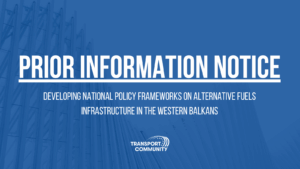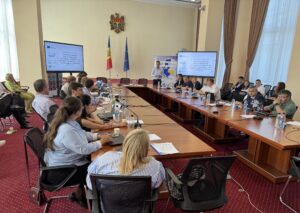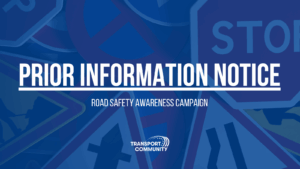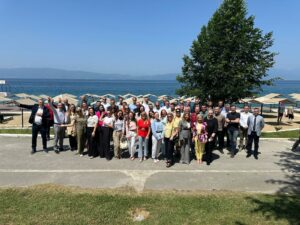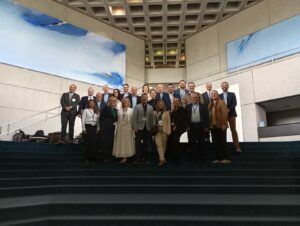2020 has been one of the most unforgettable years. With everything that was changed and challenged due to the COVID-19 pandemic, it has also been a year when we were reminded on what connects us – a shared humanity, care for each other and a wish to build a better world.

In a year marked by a world-wide health pandemic, our immediate concern was that essential goods, such as medical equipment, reach everybody who needs it. At the Transport Community we have joined efforts with our friends at the Central European Free Trade Agreement Organisation (CEFTA) and established a concept of prioritising goods at border crossings in the Western Balkans.
By coordinating actions of regional administrations and their border authorities, Green Lanes prevented shortage of essential items such as food and medicine in the Western Balkans. The region demonstrated that when it works together, with a common goal and determination, it works together very well. This initiative showed benefits of joining forces for the common good.
In that respect, one of our main goals for 2021 is expanding Green Lanes from the Western Balkans to the neighbouring EU Member States, for which initial steps have been taken at the end of 2020. We hope to see the first Green Lanes border crossings functioning between the EU and the Western Balkans already at the start of new year. At the same time, this should be a steppingstone to better managed borders, decrease of waiting times for passengers and freight, and the one-stop-go approach at all our borders.

Our work in 2021 will continue to be guided by the four Action Plans which were unanimously endorsed at the Ministerial Council of the Transport Community in October 2020. These four key documents on rail, roads, road safety and transport facilitation are a step-by-step guide on how to achieve common political priorities of the Western Balkans regional partners, as well as political objectives of the Transport Community Treaty.
The Action Plans will be our guide and user manual on how to achieve safer roads without fatalities and seriously injured, fast and reliable railways for passengers and cargo, modern roads with digital and green elements and efficient border crossings.
As such, they form a base for our future engagement in the region. To jumpstart their implementation, these strategic documents were presented at workshops in each of the six regional partners. Recognising the importance of political support for our work in the region, the Transport Community Ministerial Council taking place on 29 June will take stock of our accomplishments in the first six months of 2021 and provide the necessary political impetus for the second half of 2021.

Maintaining strong links with administrations in the region, EU member states (especially those neighbouring Western Balkans) and international financial institutions will continue in 2021. During the first few months of taking office, Director Zakonjšek met with all Ministers responsible for transport, with Prime Ministers of Albania, Serbia, North Macedonia, Montenegro, and Kosovo*, as well as with Commissioner Oliver Varhelyi, all of whom expressed highest-level political support for the work that we do.
Work of the Transport Community Permanent Secretariat is guided by representatives of our regional partners and the European Commission in the Regional Steering Committee. They have met four times in 2020 to provide guidance on the administration of the Transport Community Treaty and to ensure its proper implementation. Their expertise and commitment to the region is unparalleled. At the same time, the technical work is supported by various Technical Committees that have met twelve times in 2020 to forge consensus and help us deliver on our priorities.
Our work with our friends at the European Commission, especially colleagues at Directorate-General for Mobility and Transport under guidance of Commissioner Adina Vălean and Director General Henrik Hololei, as well as Directorate-General for Neighbourhood and Enlargement Negotiations, has intensified in 2020. Their guidance and assistance have helped us to serve our regional partners and achieve objectives of the Transport Community.

We have followed political priorities outlined in the European Commission’s 2020 Economic and Investment Plan for the Western Balkans which identified transport and connectivity as key enablers of the region’s economic transformation. The plan focuses on investments on the core Trans-European Transport Network, fast and efficient transport links, connectivity reform measures, aligning and simplifying border crossing procedures. As such, it is fully in line with the Transport Community’s objectives for 2021 and beyond.
The region’s positive response to the Economic and Investment Plan and its commitment to enhanced connectivity were reaffirmed at the Western Balkans Sofia Summit in November.

When discussing plans for 2021, we cannot stress enough the importance of rail. This is particularly relevant in the Western Balkans, where there is so much potential to improve rail connections and increase speed and reliability. To deliver on these objectives, we will focus on implementing the Rail Action Plan and strengthening cooperation with relevant stakeholders such as the European Agency for Railways (ERA), financial institutions (specially the European Investment Bank and the European Bank for Reconstruction and Development, as well as the World Bank and DFC), railway undertakings and our regional partners.
By the end of 2020, the Transport Community and European Railway Agency already organised six successful workshops in all regional partners focused on Electronic Registry of Vehicles, safety, and interoperability. In 2021 we will build on our partnership with Shift2Rail Joint Undertaking, to deliver, through railway research and innovation, the capabilities to bring about the most sustainable, cost-efficient, high-performing, time-driven, digital and competitive customer-centred transport mode for the Western Balkans.
Next year in February, the Transport Community will organise the Social Forum which will bring together a wide network of stakeholders working together to shed a light on important social issues in the rail sector. The months of March and April will be dedicated to the organisation of the first Western Balkans Rail Summit. A rail system which is safe, environmentally and socially sustainable, and inter-connected within the region and with EU, is the overarching aim of the Transport Community, especially in 2021 which will be the EU Year of Rail. The future is indeed on track(s)!

Next year, we will continue striving for “Vision Zero” – no more dead or injured on our roads and railway crossings. We will be setting up the first Western Balkans Road Safety Observatory, maintaining close cooperation with the World Health Organisation and the network of European traffic police forces (ROADPOL) and increasing awareness of road safety among our regional partners. Also, we will continue to rely on support of road safety visionaries like the United Nations Special Envoy for Road Safety, Mr Jean Todt.
In 2020, we marked important transport-related events such as Road Safety Week and European Mobility Week, which will be in our focus in the years to come as well.

Regional cooperation continues to be at the heart of our work. This year we supported the initiative of the Regional Cooperation Council and CEFTA for establishment of the Common Regional Market. One-stop-go controls, part of our transport facilitation measures, are an integral part of the Common Regional Market and 2021 will build upon the significant results already achieved in this area.
We will also build on our partnership with EU Strategies for the Danube Region (EUSDR) and the Adriatic-Ionian Region (EUSAIR) to create synergies and coordination between existing policies and initiatives taking place across the region covering Western Balkans.

Decarbonisation will be a central theme in 2021, guiding all our work in all modes of transport. The most serious challenge facing the transport sector is to significantly reduce its emissions and become more sustainable. We need to make our transport truly resilient and, in order to achieve this, a pan-European, coordinated approach is of outmost importance.
In 2021 we will be guided by the European Commission’s Sustainable and Smart Mobility Strategy, which is putting European transport on track for the future. In line with the Green Agenda for the Western Balkans, we will be focusing on what needs to be done in the Western Balkans to achieve our common climate objectives.

Finally, it is important to remember that it is not transport that keeps the world turning – it is people who work in transport. And the reason why the world has not stopped during this crisis is because our truck and train drivers, delivery men and women, pilots and sailors kept doing their work. When we were all home under lockdown, fearful for the world around us, it was them who were facing the virus, doing their job and delivering goods, as well as medical equipment, that saved countless lives. At the end of this year, we would like to thank our truck and train drivers, delivery men and women, pilots and sailors – they are our heroes.
Happy Holidays from the Transport Community Permanent Secretariat!
Transport Community’s 2020 Highlights and Perspectives for 2021 can be downloaded from this link.
*This designation is without prejudice to positions on status and is in line with UNSCR 1244 and the ICJ Opinion on the Kosovo declaration of independence.




